Dr. David Sitt is a clinical psychologist, an unintentional teacher of nearly 20 years, a Syrian Sephardi Jew, a proud kohen and descendent of King David, a loving and learning father and husband, and an actively evolving man with much more to give the world.
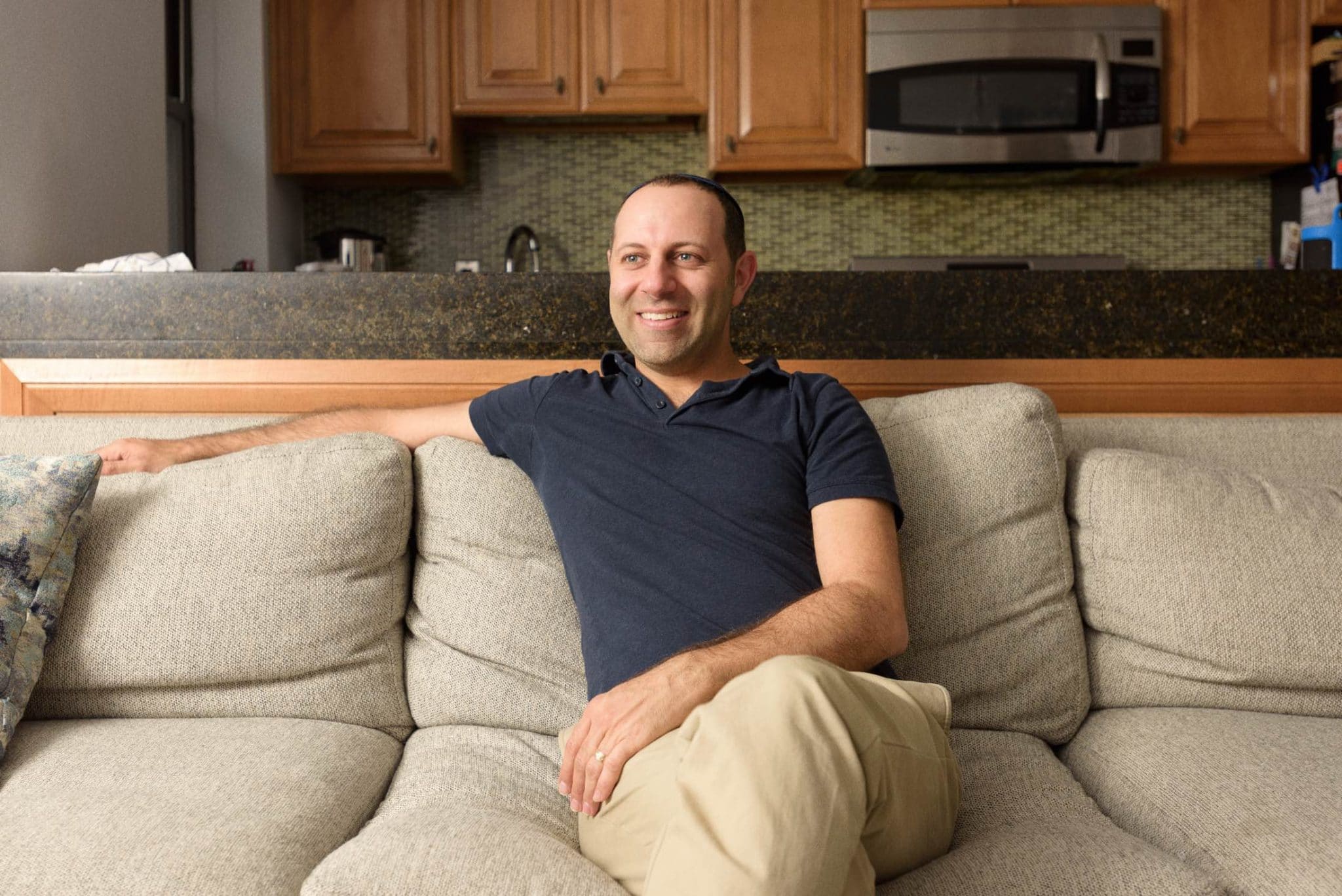
What is the meaning of your name?
For many years of my life, I didn’t know the story of my name.
In my culture – the Sephardic Syrian culture – you name the first two boys and the first two girls in the family after their grandparents. I was the third boy in my family, so I was the “free” name. I would ask why I was named David, and they said, “Free name.”
My family has roots and lineage going back to King David.
I’m generation 89 or 88 from King David.
So, I romantically told myself that’s why my family picked David.
There is a real story that I learned later on in life. My grandmother had a young child, the fifth of the family, who was born developmentally disabled and who lived two months and then died. His name was David. I didn’t know that until I found it written in a journal entry that my mother had in a book that happened to be in my room. I read it one day and I was blown away.
In Sephardic culture, you don’t name after the dead like you would in the Ashkenazi community. But, my mother did that.
My last name has an Arabic reference. It’s said that many, many, many, many generations back, there was a very influential woman who had real estate in Syria. The home of that woman was called Bayit Sitt. Sitt may also be an acronym for “Sepharadi tahor,” or “pure Sephardic.”
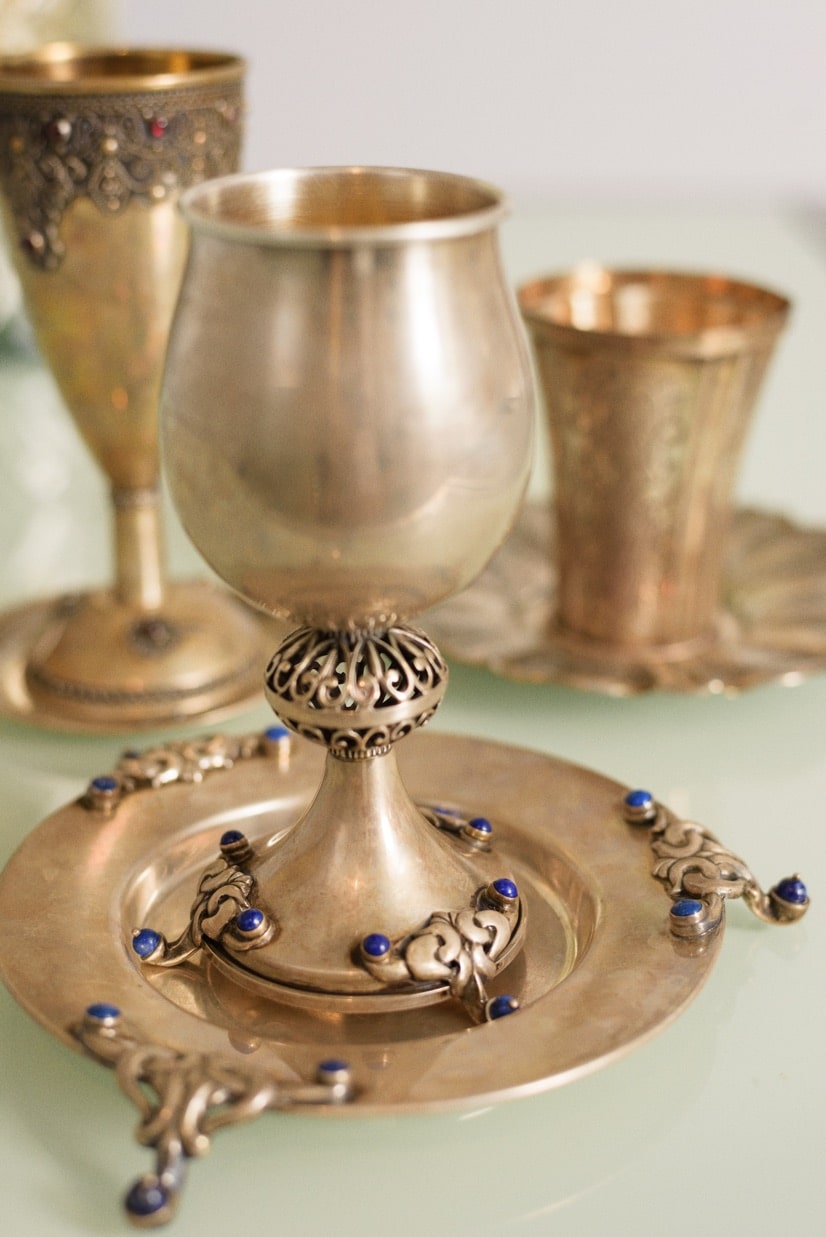
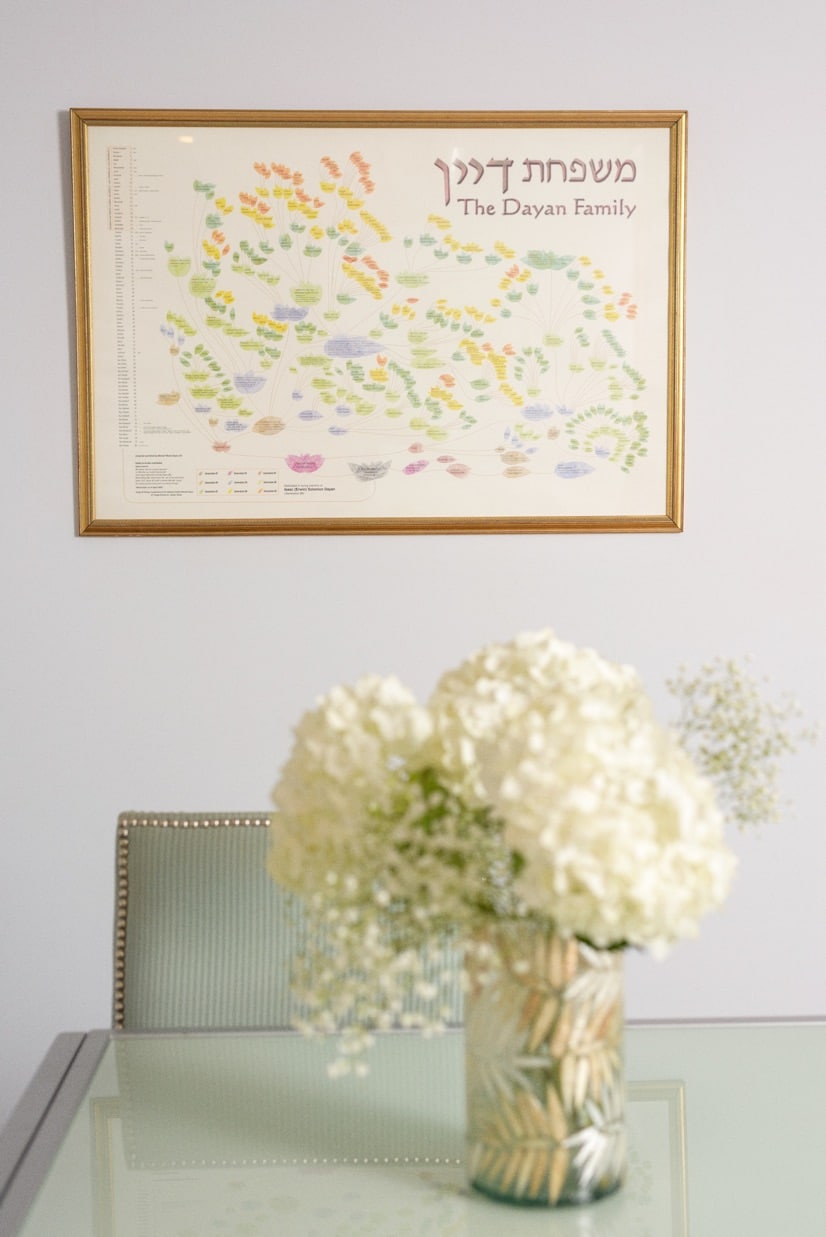
What did you want to be when you grew up?
The adults around me often commented that I was going to be a lawyer, the type that was arguing in front of the Supreme Court. I was a good arguer. I was a good speaker. I was a good talker.
I’m the youngest of four siblings. I had to get my voice heard among the elders in my family, so I developed that ability of argumentation, and logic, and for convincing people to do things.
What advice would you give your teenage self?
Don’t worry. You’re going to figure it out. You’re going to find your way. Not that you’re necessarily going to get what you dream of, but that what you live is what is.
Who’s the wealthy one? The person who is content with his lot.
It’s really about finding contentment with whatever you have, whether that be materially rich, emotionally rich, or relationship rich.
What role did Judaism play in your upbringing?
I grew up in a bubble in the Syrian community, which is very tight-knit. There was a very strong sense of borders, but we were also integrated into society. It’s a remnant from a time when we lived in Arab lands among our neighbors. We didn’t live in shtetls, isolated from our neighbors. Even when things got rough in Syria, my father’s neighbor lied to the people who were trying to find the Jews to harm them and said, “No, no, no. No Jews live here. This is my house.”
Growing up, Judaism was not so much about doing the mitzvot, doing the rules, and following the regulations. It was about engaging in Judaism through the lens of family. Everyone observed Shabbat, but it wasn’t in the ultra-Orthodox or even Modern Orthodox way. Some people watched television. Some people used the phone. Some people went to work. Some people drove cars.
But everybody got that Shabbat was a time for family and a time for separation.
When I went to college and traveled abroad, I met Jews not from my community and not from my viewpoint. In LA, Yom Kippur was the extent of their practice of Judaism. They went to the summer programs and Hebrew school. I was the first person they ever met that had a more ritualized way of engaging with Jewish identity. That was eye-opening and interesting for me.
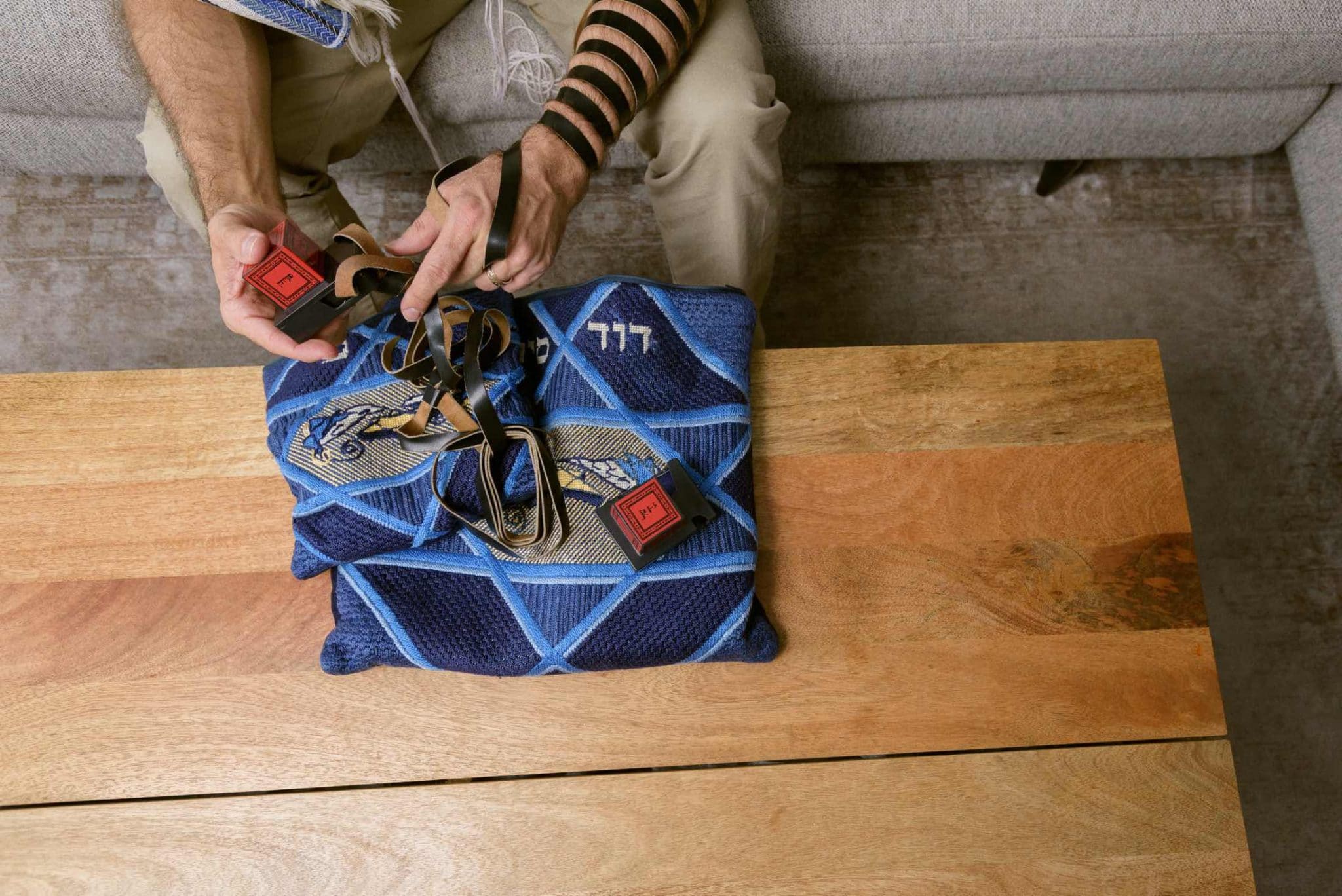
How would you describe your relationship with Judaism today?
Being Jewish is very tribal to me. I look at the family tree on my wall, and it’s a validated, verified genealogical tree. That’s a strong part of my identity.
My family from both my mother and my father’s sides are kohanim. We’re of the priests. Both my mother’s and father’s families served in the times of the temple.
I affiliate and identify very strongly with myself being a kohen.
If the time of the Messiah comes, however you define that, and the Temple gets rebuilt or floats down from heaven, I’ve got to show up and do my duty and be a priest. I’m a teacher by nature, and a priest is a teacher. So, that’s a deep part of my Jewish identity, as well.
I’m married, I’m 40, and I have two kids. My wife is not Sephardic, my wife is Ashkenazi. She brought in a more strict “letter of the law” approach to Judaism, whereas I was a “spirit of the law” practitioner. Now, I’m observant of Shabbat.
I am proud of the fact that I don’t use my phone or watch TV on Shabbat.
If we left the light on and my kids have to go to sleep, I’ll turn it off. I’m not so extreme where my belief has oriented me to the letter of the law above all else.
I love knowing that I am in a relationship with God. I love knowing that there’s a quantum physical reality to the world, and science is, as I see it, explaining God. I relate to it and I connect to it and I feel it.
What has been the biggest surprise to you about being a parent?
What has not been a surprise is the deep love and excitement and curiosity and awe of the unknown unfolding. We expected that. It’s an amazing experience.
What was surprising is the ways in which it’s hard. I know that I gave my parents a hard time, but, for my own children, seeing how that unfolded was surprising. And, as parents, trying to work together to sensitively and patiently deal with that is hard.
It’s easy to lose your patience, and you need to be on your game, because children see and children do. I’ve seen my son grit his teeth and go, “Grrr,” the same way I do. I have to be mindful.
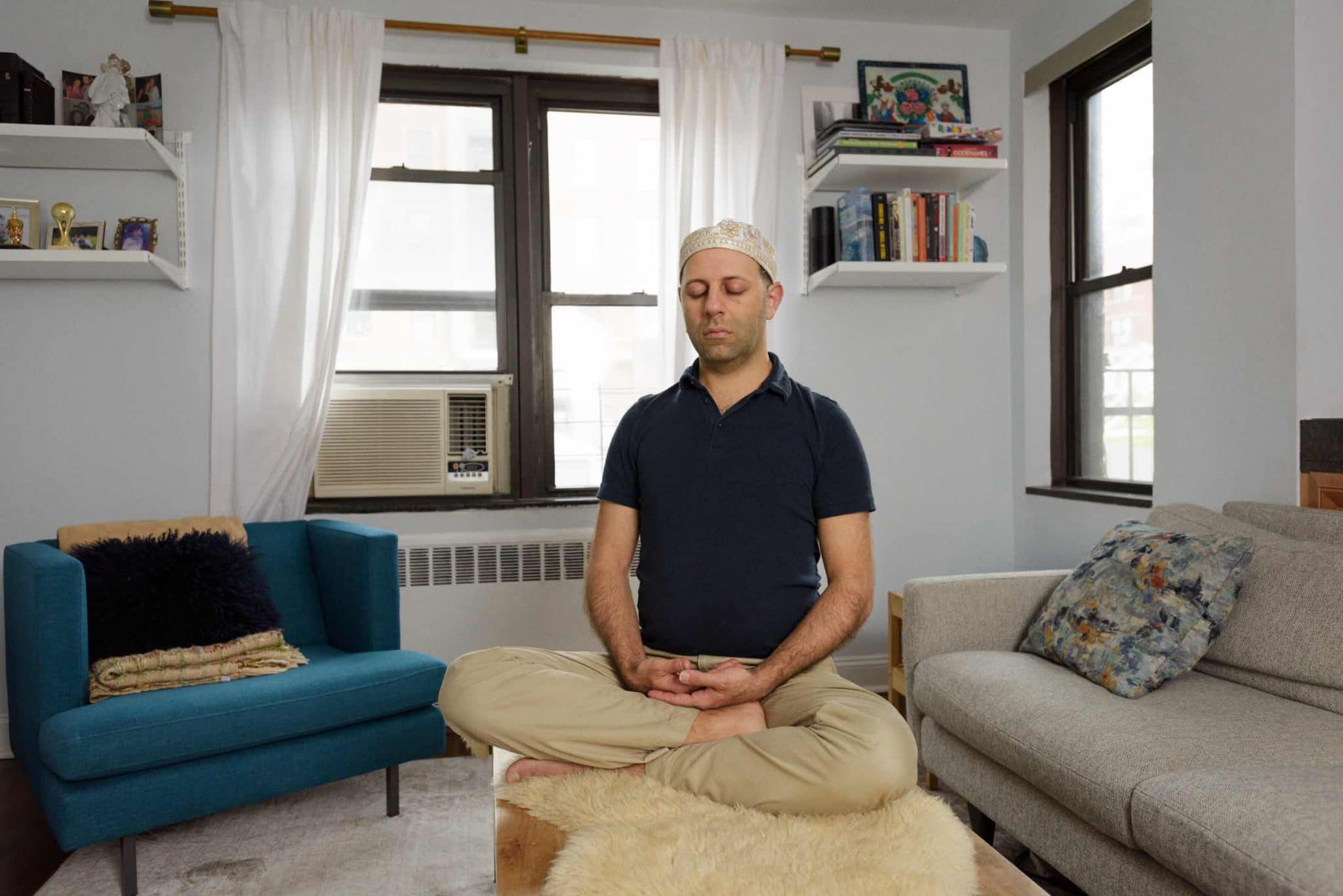
Given your role as a psychologist and your advising work on the impact of technology on productivity, brain functioning, and interpersonal communication, what is your perspective on the current moment we’re in? How do we cope with it?
We’re jumping ahead so quickly. We are going through an extreme evolution unlike we’ve ever done before. Maybe when the printing press came out and we shifted from telling stories and depending on memory to, “I don’t have to remember it. It’s written in a book,” people freaked out. Except technology is way more powerful than a book. It is addictive.
My kids are five and three, and we are extremely limited in how much technology we let them access.
They watch television. They watch thirty minutes or an hour spread out. I do not give them my cell phone. We own iPads or Kindles for each of them, but we only use them if we’re going on an airplane or long car rides. Otherwise, I don’t care how much they beg and ask for it, they do not get it, because it is, in my opinion, eroding a lot of the beauty of being a curious, excited, relatable, humanly interactive kid. It’s not only the kids, it’s the adults. We’re worse than the kids.
I believe we have a ways to go before we figure out if we can even have a semblance of awareness of us without technology.
What are we without technology?
There are many people today who have never lived a day without their phone in their hand.
It’s one of the reasons why I really appreciate Judaism. I was always told when I was a kid that the answers to all the world’s problems are in the Torah. There are an amazing amount of guidelines given to us about how to be mindful of our relationship to technology. You have to unplug one day a week and on every major holiday where you need to be thinking about family and God and humanity and nature.
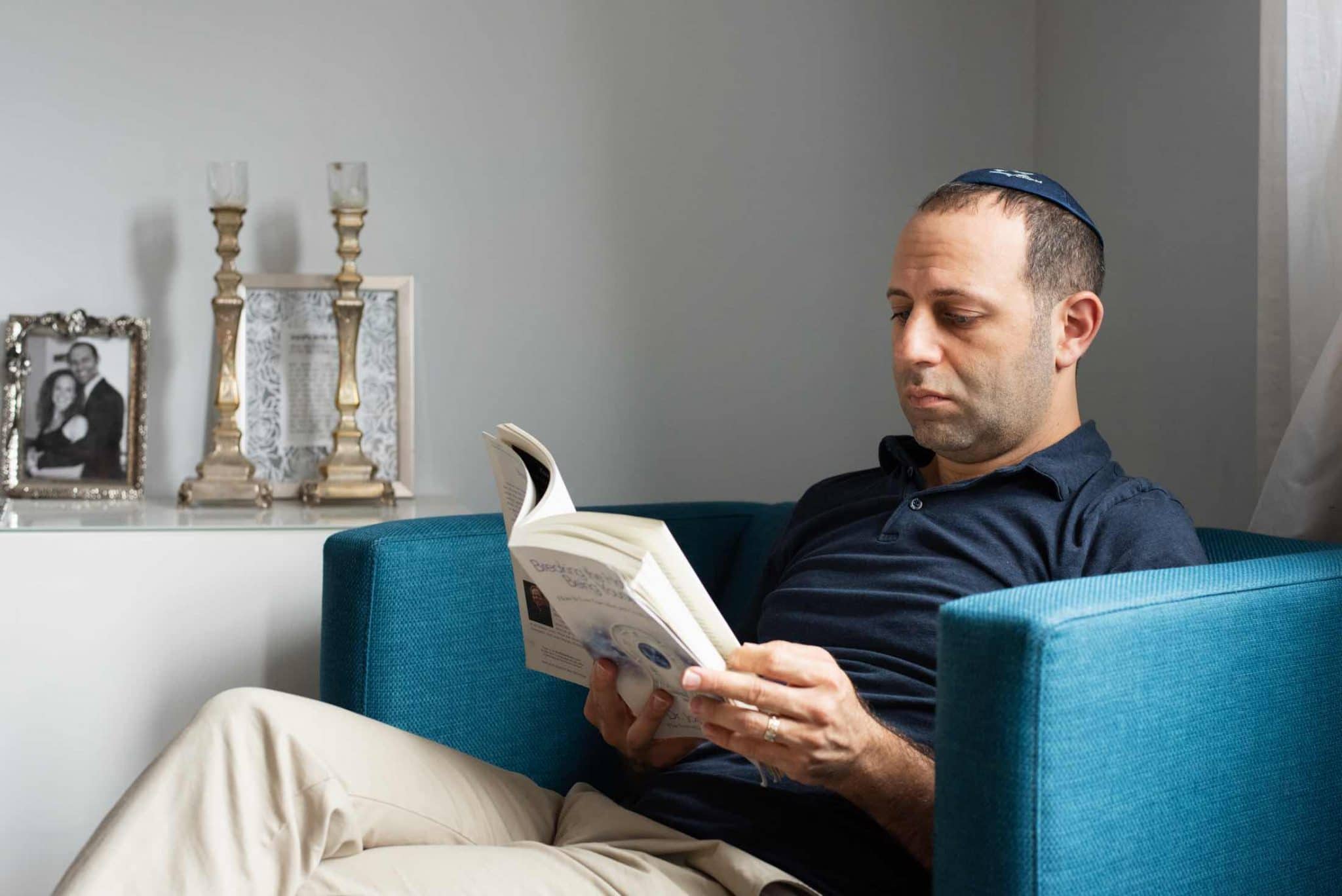
What do you consider your greatest achievement?
I’m really proud of and humbled by having been a teacher. It was not my intention or aspiration to be a professor, it just happened. Hashem put me in that position.
I have been teaching since I was 22 years old. By teaching, I mean channeling God and the universe’s knowledge. Sometimes, wisdom.
Wisdom comes from a combination of knowledge and life experience and the ability to see beyond the pale of things.
I think my biggest achievement thus far has been embracing a role that I didn’t seek, but which sought me.
I’m a kohen. I’m a priest. I’m a teacher. I have this gene in me, and it’s pretty cool that I ended up unfolding with it, and not bowing to the pressure that I had from my community: “You have to go make money. That’s your top priority.”
Also, I was part of a small group of people that planted the seed and then watered and developed a Jewish community in downtown Manhattan. That was my first child.
I’ve been living downtown for 20 years. When I first moved here, there was no Sephardic synagogue. They were uptown. I met this amazing kid who had an Ashkenazi mother and a Moroccan father. He grew up in an Ashkenazi world, and when he was 15, he wanted to tap into his Sephardic roots. He asked the community that he was a part of, “Can we use the upstairs room that no one uses? Can I start a Sephardic minyan and try to get 10 people to come pray every now and then?”
They said, “Okay, go for it.” I was among that group of people. We hustled to try to get a minyan on a regular basis.
It was a labor of love.
Eventually we had steady Shabbat minyanim and more people started coming downtown. Then we got daily minyanim, and it grew from there.
Fast forward 15 years later, we occupy a 10,000 square foot, three story condo on Sullivan Street in the heart of the village. It’s a booming shul. It’s completely alive. It’s not just a flower, it’s a whole garden of beauty and spirituality.
It’s a vortex of God’s spirit. It’s a unique community. We have very little, if not any, politics. Very little, if not any, fighting. We’re pure love and dedication. It’s not just for Syrians. We welcome everybody to the synagogue.
What are some things you’re still working to understand?
Being a father to a Jewish family. How do I raise my kids to not be dogmatic and be open minded, but also have a strong connection and bond with Judaism and with their culture and their heritage? That whole journey ahead of me is unknown.
Even though I’ve been teaching for 18 years and it’s amazing, I want to break out of that. What I’ve done up until now is great, and, if I die tomorrow, awesome, I did phenomenally. But, I’m not dying tomorrow as far as I know. I’m going to 120.
I want to channel the deeper parts of me. I have so much more to offer for myself, for my family, and for society and the world, I just don’t know how to do it yet. I always imagine that I’ve been climbing a mountain. I’ve reached the peak of a mountain, but there’s the next peak, and I have to figure out how to jump from this mountain to the side of that mountain, and then climb that mountain to its peak.
It’s right there, if you don’t let fear grip you.
I’ve had this feeling already for 15 years. In 2009, I wrote, “This is the book I’m going to write.” 10 years later, I didn’t freaking write it. What’s happening? What am I doing? What’s going on? Am I going to be that guy that always says, “Yeah, I’m gonna get to it?”
What is your favorite place on earth?
My favorite place on earth is where I am right now. Wherever I am in this moment is my favorite place on earth. That’s all there is for me. That’s it. That’s what I’m connected to now.
Secondary to that, I love India. India is in my heart, I think about it all the time. Israel is in my heart. And the Riviera Coast of Mexico and Black Rock Desert of Nevada. Those are places where I’ve had deep experiences that stuck with me. They’re part of who I am.
Best Jewish food? Worst Jewish food?
The worst Jewish food for me is gefilte fish. Don’t do it, don’t go there, it doesn’t work for me. The best Jewish food is something called kibbeh cherry. And chicken and spaghetti, a Sephardic Syrian dish.
Photos by Ian Warren
Thank you for visiting Arq!
Arq is no longer publishing new content. We hope you'll enjoy our archived posts.